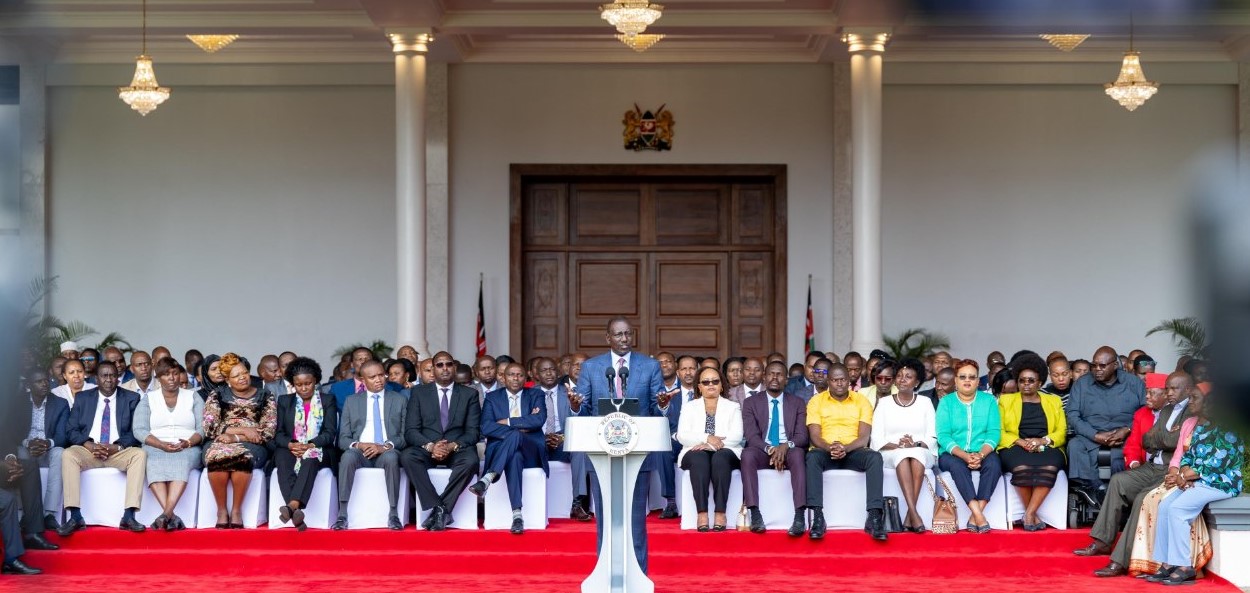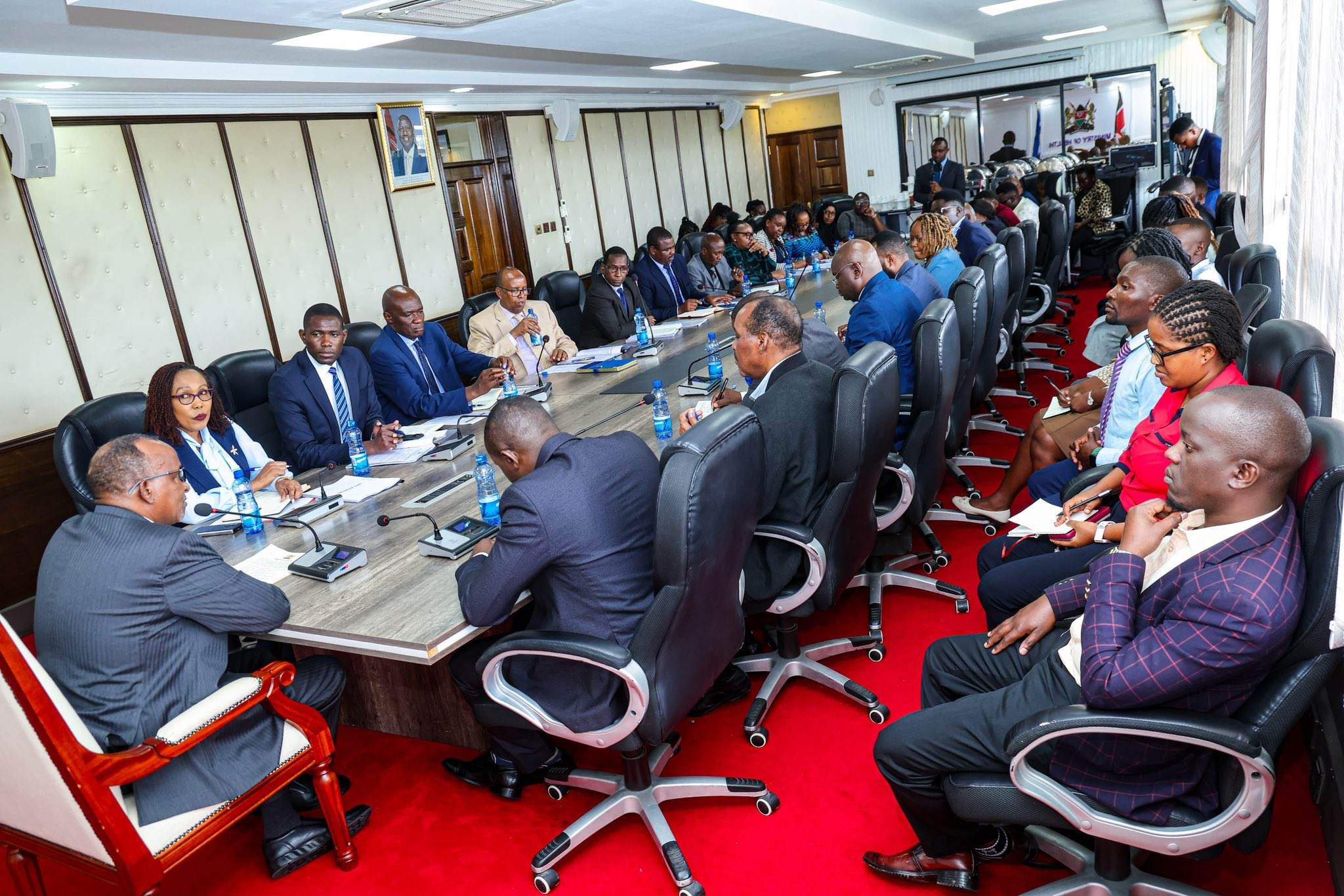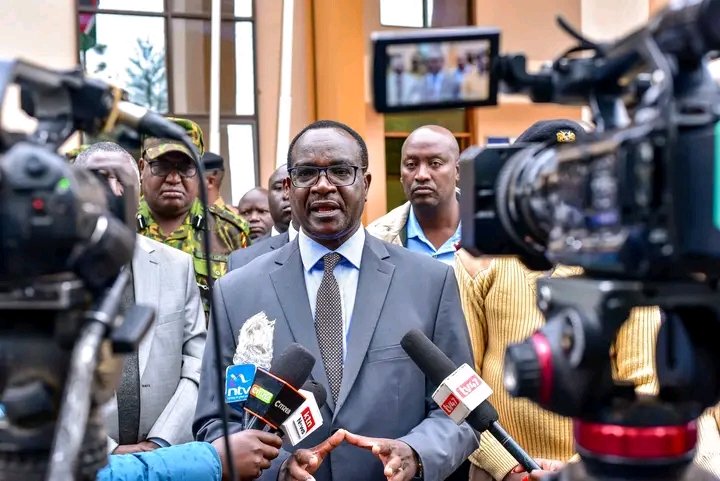Court suspends Ruto’s directive on mandatory retirement for public servants

The measure was part of broader austerity steps aimed at adjusting government spending in light of the Finance Bill, 2024's withdrawal.
The Employment and Labour Relations Court has suspended President William Ruto’s recent directive mandating the retirement of public servants at the age of 60.
On July 5, 2024, President Ruto announced that all public servants who reach the age of 60 would be required to retire immediately, without extensions. The measure was part of broader austerity steps aimed at adjusting government spending in light of the Finance Bill, 2024's withdrawal.
More To Read
- Retirement age rule doesn't apply to PS positions, says PSC
- Senate flags 29 state agencies for age violations, ethnic imbalance in workforce
- Relief for pensioners as Parliament passes Pensions Amendment Bill, 2022
- Prioritising today's needs over the future: The retirement dilemma facing Kenyan youths
- City resident petitions court to scrap retirement age
However, ELRC Judge Anna Ngibuini Mwaure suspended the directive pending the outcome of a petition filed by Caroline Wambui Mwangi.
"Pending the hearing and determination of this Application inter-partes, a conservatory order be and is hereby issued staying the Presidential directive dated July 8, 2024, on mandatory retirement age for public officers serving on permanent and pensionable terms or any other precipitate action," read the order.
Wambui's lawyer Robinson Maina, highlighted that the directive, issued on July 8, 2024, by Head of Public Service Felix Koskei, did not account for existing employment contracts of those under the age threshold.
Financial repercussions
He warned that the directive could lead to significant financial repercussions for taxpayers due to potential damages from breach of contract claims.
The directive required all public officers who have attained the age of 60 years to proceed on retirement without fail except all cadres of all the staff whose terms are pegged on the existing schemes of service such as academic staff serving in public universities, researchers serving in research institutions, persons living with disabilities; and retirement age for the judges stipulated in Article 167(1) of the Constitution.
The directive was addressed to the Speaker of the National Assembly and chairperson of the Parliamentary Service Commission, Chief Justice Martha Koome, chairpersons of the Council of Governors, PSC and Teachers Service Commission.
 President William Ruto addresses the nation from the State House in Nairobi on June 26, 2024, when he withdrew the Finance Bill following violent protests. (Photo: PCS)
President William Ruto addresses the nation from the State House in Nairobi on June 26, 2024, when he withdrew the Finance Bill following violent protests. (Photo: PCS)
Wambui said the directive and the subsequent publication by Koskei are unconstitutional, illegal, null and void for being in contravention of the constitution and the law.
She cited Section 80 of the Public Service Act and Regulation 70 of the Public Service Commission Regulations, 2019, which give the PSC the authority to set retirement ages for specific public officer categories, including university lecturers and research scientists.
These include lecturers and research scientists serving in public universities, research institutions or equivalent institutions as determined by PSC in consultation with such universities, research institutions or equivalent institutions.
JSC review
Additionally, Article 172 (1) (b) of the Constitution mandates the Judicial Service Commission to review and recommend conditions of service for judges and judicial officers, including retirement ages.
Wambui also argued that no public participation was conducted before the issuance of the directive.
"Thus, the said directive runs counter to the national values and principles of governance enunciated in Article 10 of the Constitution. Unless reversed, the directive will expose taxpayers to severe financial setbacks accruing from awards for damages occasioned by breach of contract," she said.
She noted that she was apprehensive about the rights and fundamental freedoms of all public servants affected by the directive and the publication if the case is not heard on priority.
The case will be mentioned on September 17, 2024, to give a date for ruling.
Judge Mwaure also issued orders restraining the Attorney-General or any other person acting under his directive from implementing or enforcing the Presidential directive.
Wambui's lawyer, Maina was also directed to serve the petition to the Attorney General, Public Service Commission and the Judicial Service Commission with the court documents.
Top Stories Today













































